Sardine
How to submit an article:
- Registered users can submit any published journal article that has a unique DOI (Digital Object Identifier) name or link to Research Hub.
- For example, you can paste the full DOI link:
https://doi.org/10.1109/5.771073or just the DOI name:10.1109/5.771073into the field above and click submit. - The person who is first to submit a valid article to Research Hub will forever be credited for it, and every article submission earns you +6 Research Points.
Related Topics
Published research studies are articles that present the findings of original research that has undergone a peer-review process and has been made publicly available in scholarly journals, books or other media.

Nutrition and its role in prevention and management of rheumatoid arthritis
2023 Jul Autoimmunity Reviews Nikiphorou E, Philippou E
Review Article Mediterranean Diet Sardine Omega-3 Fatty AcidsNutrition, particularly an anti-inflammatory Mediterranean diet supplemented with oily fish and omega-3 supplements, can potentially reduce inflammation and improve symptoms of rheumatoid arthritis.

Eating more sardines instead of fish oil supplementation: Beyond omega-3 polyunsaturated fatty acids, a matrix of nutrients with cardiovascular benefits
2023 Apr 14 Frontiers in Nutrition Santos HO, May TL, Bueno AA
Review Article Omega-3 Fatty Acids Cholesterol High Blood Pressure Cardiovascular Disease Metabolic Syndrome Sardine Type 2 DiabetesSardines, being an affordable source of Omega-3 and other cardioprotective nutrients, can potentially reduce the need for Omega-3 supplementation and manage cardiometabolic diseases.
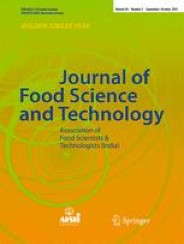
Variations in nutritional quality and fatty acids composition of sardine (Sardina pilchardus) during canning process in grape seed and olive oils
2022 Aug 31 Journal of Food Science and Technology Bouriga N, Rjiba Bahri W, Mili S, Massoudi S, Quignard JP, Trabelsi M
Experimental Study Grape Seed Oil SardineUsing grape seed oil in the sardine canning process enhances the lipid nutritional quality and increases the fat, protein, and ash contents.
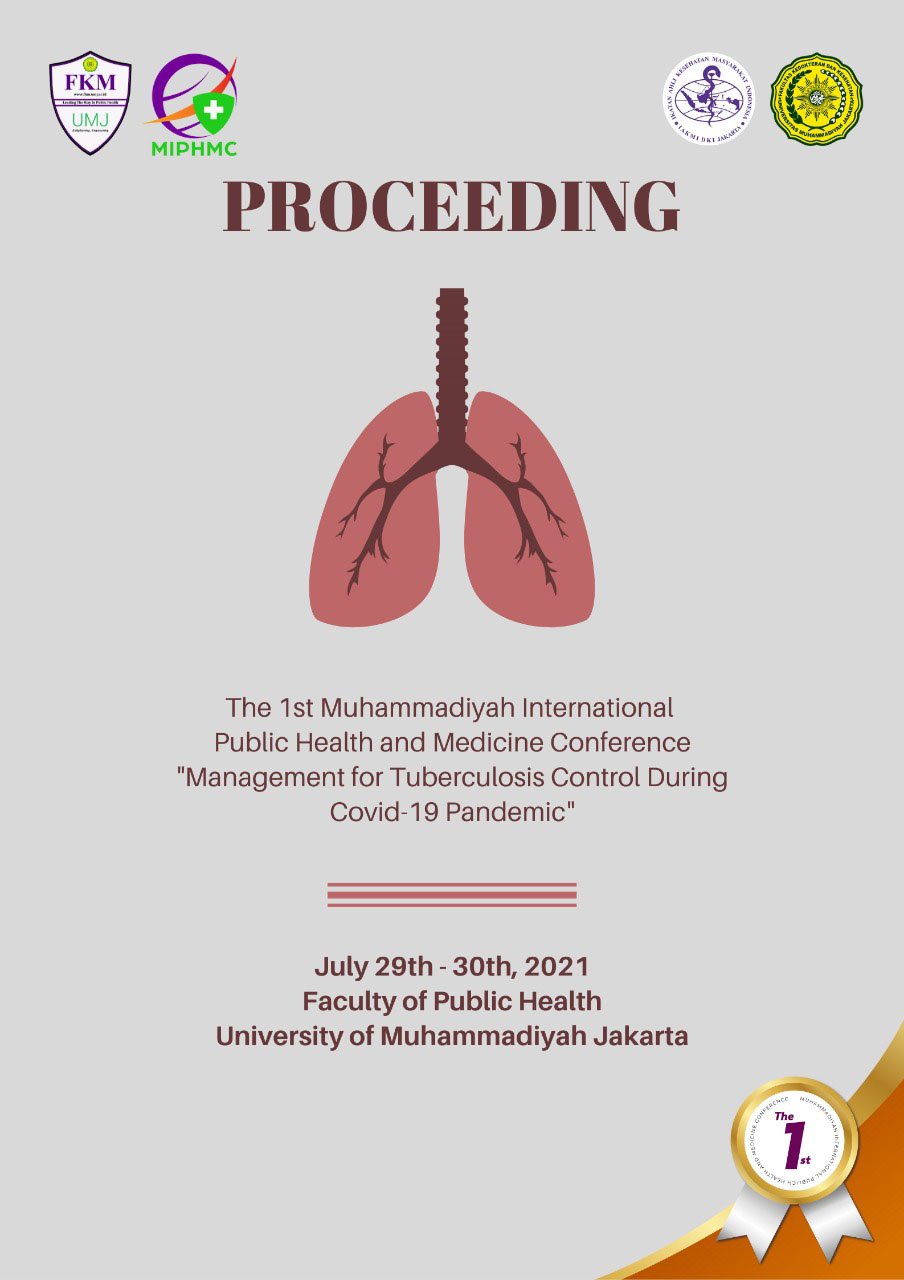
The Benefits of Consuming Sardines to Prevent Hypertension and Type 2 Diabetes Mellitus for Senior Citizens
2021 Nov 01 Muhammadiyah International Public Health and Medicine Proceeding Nurdiana Febriyanti V
Cohort Study Type 2 Diabetes Sardine High Blood Pressure Omega-3 Fatty AcidsConsumption of sardines can effectively prevent type 2 diabetes mellitus and hypertension, particularly in senior citizens, due to their high omega 3, EPA, and DHA content.
Sardines are highly proven to be able to effectively prevent type 2 diabetes, prevent hypertension, and lower blood pressure, especially for senior citizens.
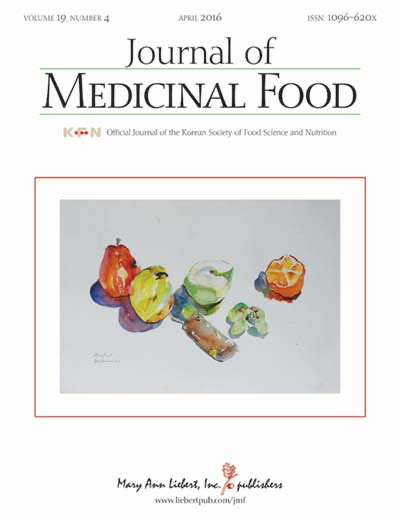
Influence of Omega-3 Fatty Acid-Rich Fish Oils on Hyperlipidemia: Effect of Eel, Sardine, Trout, and Cod Oils on Hyperlipidemic Mice
2021 Jul 01 Journal of Medicinal Food Kontostathi M, Isou S, Mostratos D, Vasdekis V, Demertzis N, Kourounakis A, et al.
Animal Study Cholesterol Cardiovascular Disease Digestive Health Eel Trout SardineOmega-3 fatty acids found in selected fish oils, particularly smoked eel, effectively managed dyslipidemia and reduced cardiovascular disease risk factors.
Research insights are moderated by the Research Hub team and offer an at-a-glance overview of interesting research findings.

2023 Autoimmunity Reviews
Nutrition, particularly an anti-inflammatory Mediterranean diet supplemented with oily fish and omega-3 supplements, can potentially reduce inflammation and improve symptoms of rheumatoid arthritis.
Review Article Mediterranean Diet Omega-3 Fatty Acids
Nutrition and its role in prevention and management of rheumatoid arthritis
Nikiphorou E, Philippou E

2023 Frontiers in Nutrition
Sardines, being an affordable source of Omega-3 and other cardioprotective nutrients, can potentially reduce the need for Omega-3 supplementation and manage cardiometabolic diseases.
Review Article Cardiovascular Disease Cholesterol High Blood Pressure Metabolic Syndrome Omega-3 Fatty Acids
Eating more sardines instead of fish oil supplementation: Beyond omega-3 polyunsaturated fatty acids, a matrix of nutrients with cardiovascular benefits
Santos HO, May TL, Bueno AA

2022 Journal of Food Science and Technology
Using grape seed oil in the sardine canning process enhances the lipid nutritional quality and increases the fat, protein, and ash contents.
Experimental Study Grape Seed Oil
Variations in nutritional quality and fatty acids composition of sardine (Sardina pilchardus) during canning process in grape seed and olive oils
Bouriga N, Rjiba Bahri W, Mili S, Massoudi S, Quignard JP, Trabelsi M

2021 Muhammadiyah International Public Health and Medicine Proceeding
Consumption of sardines can effectively prevent type 2 diabetes mellitus and hypertension, particularly in senior citizens, due to their high omega 3, EPA, and DHA content.
Cohort Study High Blood Pressure Omega-3 Fatty Acids Type 2 Diabetes
The Benefits of Consuming Sardines to Prevent Hypertension and Type 2 Diabetes Mellitus for Senior Citizens
Nurdiana Febriyanti V

2021 Muhammadiyah International Public Health and Medicine Proceeding
Sardines are highly proven to be able to effectively prevent type 2 diabetes, prevent hypertension, and lower blood pressure, especially for senior citizens.
Cohort Study High Blood Pressure Omega-3 Fatty Acids Type 2 Diabetes
The Benefits of Consuming Sardines to Prevent Hypertension and Type 2 Diabetes Mellitus for Senior Citizens
Nurdiana Febriyanti V
Review Articles
Review articles summarise and critically evaluate the current state of research on a specific topic or field by synthesising multiple primary research studies.

Nutrition and its role in prevention and management of rheumatoid arthritis
2023 Jul Autoimmunity Reviews Nikiphorou E, Philippou E
Review Article Mediterranean Diet Sardine Omega-3 Fatty AcidsNutrition, particularly an anti-inflammatory Mediterranean diet supplemented with oily fish and omega-3 supplements, can potentially reduce inflammation and improve symptoms of rheumatoid arthritis.

Eating more sardines instead of fish oil supplementation: Beyond omega-3 polyunsaturated fatty acids, a matrix of nutrients with cardiovascular benefits
2023 Apr 14 Frontiers in Nutrition Santos HO, May TL, Bueno AA
Review Article Omega-3 Fatty Acids Cholesterol High Blood Pressure Cardiovascular Disease Metabolic Syndrome Sardine Type 2 DiabetesSardines, being an affordable source of Omega-3 and other cardioprotective nutrients, can potentially reduce the need for Omega-3 supplementation and manage cardiometabolic diseases.
An excellent review article highlighting the benefits of this very underappreciated yet highly nutritious fish. For example, the calcium content in 100 g of sardines is equivalent to the amount found in ~ 400 ml of milk (38% of the recommended dietary allowance). Sardines also contain a considerable amount of iron (2.9 mg/100 g) comparable to that of meat and higher than other commonly consumed types of fish. —Jinnan C 20 Oct 2023
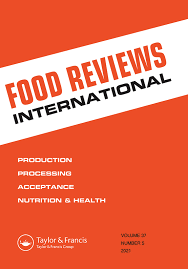
Prevention of Type 2 Diabetes through Sardines Consumption: An Integrative Review
2021 Jan 06 Food Reviews International Díaz-Rizzolo DA, Miro A, Gomis R
Review Article Sardine Omega-3 Fatty Acids Type 2 DiabetesOily fish, particularly sardines, due to their high omega-3 and taurine content, may play a protective role in slowing the progression towards type 2 diabetes.
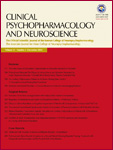
Nutritional Neuroscience as Mainstream of Psychiatry: The Evidence- Based Treatment Guidelines for Using Omega-3 Fatty Acids as a New Treatment for Psychiatric Disorders in Children and Adolescents
2020 Nov 30 Clinical Psychopharmacology and Neuroscience Chang JPC, Su KP
Review Article Omega-3 Fatty Acids Autism Walnut Psychiatric Disorder Depression ADHD SardineOmega-3 polyunsaturated fatty acids supplementation during the prenatal and perinatal period could have a protective effect on neurodevelopmental disorders including ADHD, ASD, and MDD in youth.

Recommendations of the Spanish Menopause Society on the consumption of omega-3 polyunsaturated fatty acids by postmenopausal women
2017 Sep Maturitas Sánchez-Borrego R, von Schacky C, Osorio MJA, Llaneza P, Pinto X, Losa F, et al.
Practice Guideline Review Article Depression High Blood Pressure Sardine Antiarrhythmic PsychosisLong-chain omega-3 polyunsaturated fatty acids have various health benefits for postmenopausal women including reducing triglycerides and improving depression and psychotic symptoms.
Clinical Trials
Clinical trials are research studies that involve people and are conducted to evaluate the safety and efficacy of new treatments or interventions, such as drugs, medical devices, or behavioural therapies.
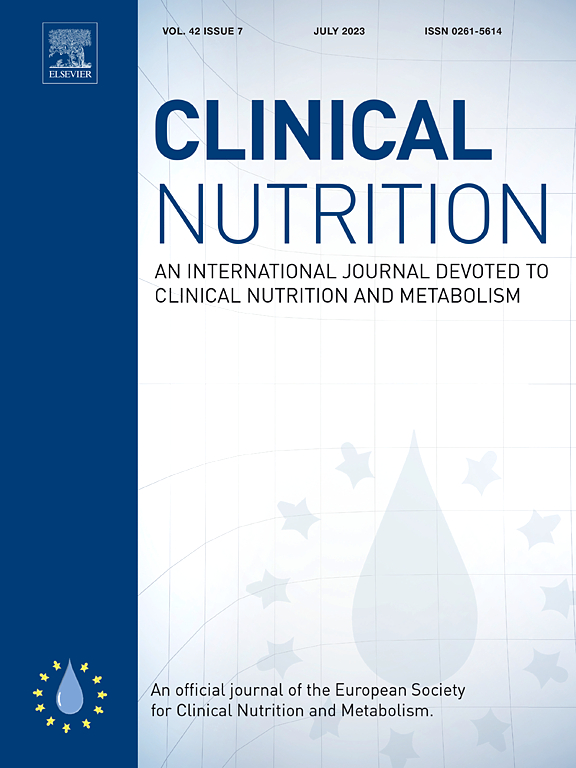
Type 2 diabetes preventive effects with a 12-months sardine-enriched diet in elderly population with prediabetes: An interventional, randomized and controlled trial
2021 May Clinical Nutrition Díaz-Rizzolo DA, Serra A, Colungo C, Sala-Vila A, Sisó-Almirall A, Gomis R
Randomised Controlled Trial Cardiovascular Disease Diabetes Sardine Anti-DiabeticEating sardines twice a week for a year significantly reduces the risk of developing type 2 diabetes in prediabetic individuals aged 65 and above.
A one-year, sardine-enriched diet in an elderly population with pre-diabetes exerts a greater protective effect against developing type 2 diabetes and cardiovascular events.
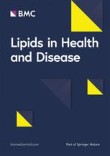
Effects of sardine-enriched diet on metabolic control, inflammation and gut microbiota in drug-naïve patients with type 2 diabetes: a pilot randomized trial
2016 Apr 18 Lipids in Health and Disease Balfegó M, Canivell S, Hanzu FA, Sala-Vila A, Martínez-Medina M, Murillo S, et al.
Randomised Controlled Trial Cardiovascular Risk Gut Microbiota Type 2 Diabetes SardineA sardine-enriched diet may have beneficial effects on cardiovascular risk and alters gut microbiota composition in patients with type 2 diabetes.
Study Protocols
Published study protocols are detailed plans that outline the objectives, methodology, statistical analyses, and organisation of a research study that have been made publicly available for others to review and use as a reference.
Presentation Slides

Review Article
Nutrition, particularly an anti-inflammatory Mediterranean diet supplemented with oily fish and omega-3 supplements, can potentially reduce inflammation and improve symptoms of rheumatoid arthritis.
Nikiphorou E, Philippou E

Review Article
Sardines, being an affordable source of Omega-3 and other cardioprotective nutrients, can potentially reduce the need for Omega-3 supplementation and manage cardiometabolic diseases.
Santos HO, May TL, Bueno AA

Experimental Study
Using grape seed oil in the sardine canning process enhances the lipid nutritional quality and increases the fat, protein, and ash contents.
Bouriga N, Rjiba Bahri W, Mili S, Massoudi S, Quignard JP, Trabelsi M

Cohort Study
Consumption of sardines can effectively prevent type 2 diabetes mellitus and hypertension, particularly in senior citizens, due to their high omega 3, EPA, and DHA content.
Nurdiana Febriyanti V

Cohort Study
Sardines are highly proven to be able to effectively prevent type 2 diabetes, prevent hypertension, and lower blood pressure, especially for senior citizens.
Nurdiana Febriyanti V

Animal Study
Omega-3 fatty acids found in selected fish oils, particularly smoked eel, effectively managed dyslipidemia and reduced cardiovascular disease risk factors.
Kontostathi M, Isou S, Mostratos D, Vasdekis V, Demertzis N, Kourounakis A, Vitsos A, Kyriazi M, Melissos D, Tsitouris C, Karalis E, Klamarias L, Dania F, Papaioannou GT, Roussis V, Polychronopoulos E, Anastassopoulou J, Theophanides T, Rallis MC, Black H

Randomised Controlled Trial
Eating sardines twice a week for a year significantly reduces the risk of developing type 2 diabetes in prediabetic individuals aged 65 and above.
Díaz-Rizzolo DA, Serra A, Colungo C, Sala-Vila A, Sisó-Almirall A, Gomis R

Randomised Controlled Trial
A one-year, sardine-enriched diet in an elderly population with pre-diabetes exerts a greater protective effect against developing type 2 diabetes and cardiovascular events.
Díaz-Rizzolo DA, Serra A, Colungo C, Sala-Vila A, Sisó-Almirall A, Gomis R

Review Article
Oily fish, particularly sardines, due to their high omega-3 and taurine content, may play a protective role in slowing the progression towards type 2 diabetes.
Díaz-Rizzolo DA, Miro A, Gomis R

Review Article
Omega-3 polyunsaturated fatty acids supplementation during the prenatal and perinatal period could have a protective effect on neurodevelopmental disorders including ADHD, ASD, and MDD in youth.
Chang JPC, Su KP
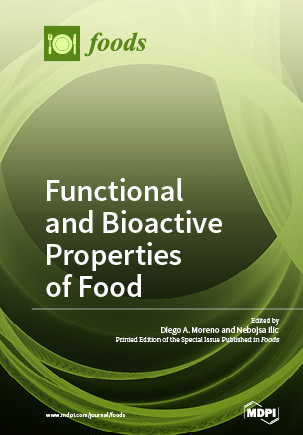
Network Pharmacology
Seasonal variations influence the nutrient composition of European sardines, with lipid levels peaking from July to September and amino acid content highest during winter.
Šimat V, Hamed I, Petričević S, Bogdanović T
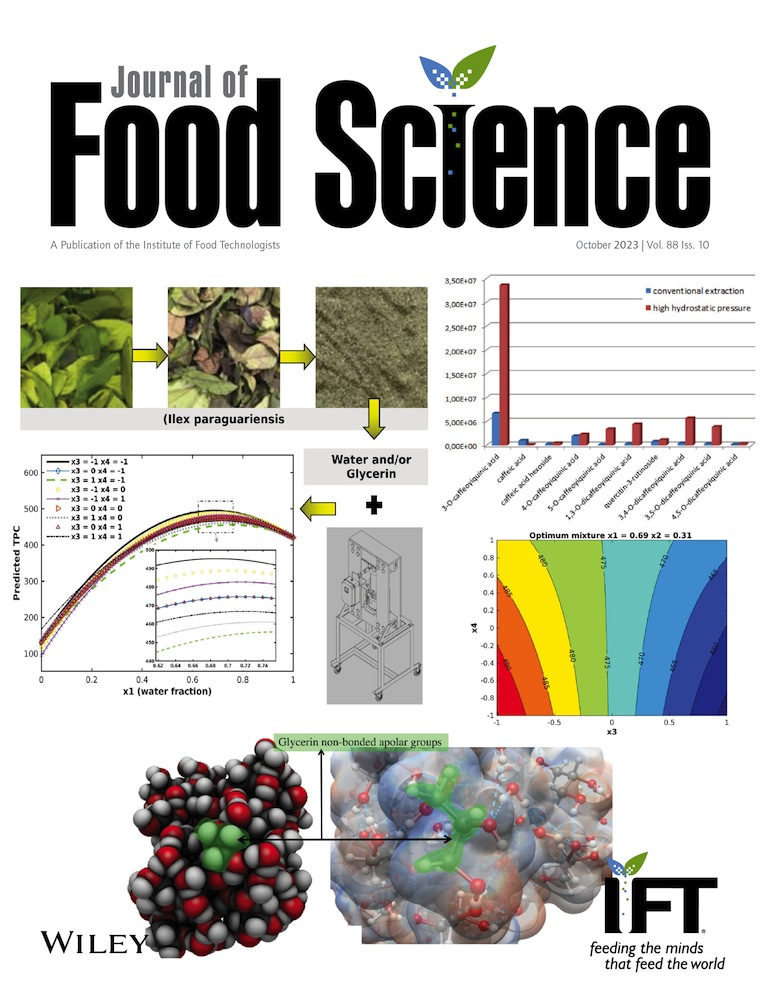
Clinical Study
Adding fresh herbs like parsley and chives to air-fried sardines reduces the levels of harmful cholesterol oxidation products formed during cooking.
Ferreira FS, Sampaio GR, Keller LM, Sawaya ACHF, Chávez DWH, Torres EAFS, Saldanha T

Practice Guideline
Long-chain omega-3 polyunsaturated fatty acids have various health benefits for postmenopausal women including reducing triglycerides and improving depression and psychotic symptoms.
Sánchez-Borrego R, von Schacky C, Osorio MJA, Llaneza P, Pinto X, Losa F, Navarro MC, Lubián D, Mendoza N

Significant amounts of small pelagic fish, a nutrient-rich food source, are unnecessarily processed into animal and pet food rather than being directed for human consumption in South Africa and Tanzania.
Isaacs M

Randomised Controlled Trial
A sardine-enriched diet may have beneficial effects on cardiovascular risk and alters gut microbiota composition in patients with type 2 diabetes.
Balfegó M, Canivell S, Hanzu FA, Sala-Vila A, Martínez-Medina M, Murillo S, Mur T, Ruano EG, Linares F, Porras N, Valladares S, Fontalba M, Roura E, Novials A, Hernández C, Aranda G, Sisó-Almirall A, Rojo-Martínez G, Simó R, Gomis R
Executive Summary
Write an executive summary in the form of a blog article on the topic of "Research into Chinese medicine treatment for Sardine" summarising the research below and using language that can be easily understood by patients and avoiding medical jargon using a professional and caring tone of voice.
Write an executive summary in the form of a blog article on the topic of "Researched Chinese medicine treatments for Sardine" summarising the research below in an objective and easy to understand way, and using language that can be easily understood by patients. Group the article into Chinese medicine treatments first, followed by nutrition and other treatments. Avoid using medical jargon and use a professional and caring tone of voice.
Write me a concise but easy to understand executive summary on the topic of "Chinese medicine treatments for Sardine" based on the following research that I will give you. Your summary should be 2 paragraphs long in Australian English spelling and include references to the studies.
A Review Article published in 2023 in the journal Autoimmunity Reviews found that Nutrition, particularly an anti-inflammatory Mediterranean diet supplemented with oily fish and omega-3 supplements, can potentially reduce inflammation and improve symptoms of rheumatoid arthritis. The review examines evidence indicating a possible connection between nutrition and the risk and management of rheumatoid arthritis, an autoimmune disease having an immune-inflammatory response. The impact of different food types was considered, including pro-inflammatory and anti-inflammatory foods. Specifically, the research highlights the effectiveness of a Mediterranean diet, rich in fish and supplemented with omega-3 polyunsaturated fatty acids, in reducing inflammation and oxidation. Other factors such as herbs and spices, beverages, vitamin D, and probiotics were also taken into account. The research emphasizes the direct and indirect role of nutrition through the management of co-morbidity. The disease activity was observed to improve with dietary changes, particularly a propensity to reduce inflammation, oxidation, and beneficial effects on gut microbiota. An anti-inflammatory Mediterranean diet, supplemented with consumption of oily fish at least twice a week, and daily intake of omega-3 polyunsaturated fatty acid supplements of 2 g, has been recommended. The study also highlights the importance of rheumatologists working closely with registered dietitians to support patients in managing a well-balanced diet according to their individual needs.
A Review Article published in 2023 in the journal Frontiers in Nutrition found that Sardines, being an affordable source of Omega-3 and other cardioprotective nutrients, can potentially reduce the need for Omega-3 supplementation and manage cardiometabolic diseases. The abstract primarily acknowledges the importance of Omega-3 polyunsaturated fatty acids with respect to managing diseases related to heart health and metabolism, for instance, type 2 diabetes, hypertension, hypertriglyceridaemia, and fatty liver disease. However, these fatty acids are not the sole beneficial component of sardines. Minerals including but not limited to calcium, potassium, and magnesium as well as substances like taurine and arginine found in sardines have a significant role in controlling mild inflammation and oxidative stress which are usually present in cardiovascular diseases and hemodynamic dysfunction. The results discussed in the abstract suggest a positive correlation between consumption of sardines and potential cardiometabolic benefits. By considering the dose-response relationship effects, a pragmatic approach towards consumption of nutrients was suggested. The intake of sardines was seen not only as a means of Omega-3 supplementation but also as a comprehensive approach to enhancing cardiovascular health. The abstract concludes with an emphasis on the many beneficial nutrients found in sardines besides Omega-3, underlining the need to shift the focus from synthetic supplementation to natural dietary improvement.
A Experimental Study published in 2022 in the journal Journal of Food Science and Technology found that Using grape seed oil in the sardine canning process enhances the lipid nutritional quality and increases the fat, protein, and ash contents. The researchers employed grape seed oil (GSO) in the canning process of sardines, comparing its effects on the nutritional quality of the canned fish to that of the traditional olive oil (OO). The assessment focused on the quantities of polyphenols, flavonoids, and non flavonoids present in both the GSO and OO, while also considering the levels of polyunsaturated fatty acids (PUFA) specifically linoleic acid in the GSO. The fat, protein, and ash content in the canned sardines were also tracked over a period of 90 days. In the results discussion, it was observed that GSO contained significantly higher levels of polyphenols, flavonoids, and non flavonoids than OO. Additionally, GSO was rich in PUFA, particularly linoleic acid. Following the canning process, canned sardines preserved using GSO demonstrated a significant increase in protein, fat, and ash content. Notably, the use of both GSO and OO resulted in a decrease in both atherogenic and thrombogenic indices to less than 1, implying improved lipid nutritional quality. Critically, levels of thiobarbituric acid and Total volatile base nitrogen remained below critical limits.
A Cohort Study published in 2021 in the journal Muhammadiyah International Public Health and Medicine Proceeding found that Consumption of sardines can effectively prevent type 2 diabetes mellitus and hypertension, particularly in senior citizens, due to their high omega 3, EPA, and DHA content. For the methodology, the researchers carried out a literature study to delve into the research topic. They exclusively used already available research and data for their study rather than new, hands-on investigations. They explored extensively into the health benefits and properties of sardines and how it contributes to preventing type 2 diabetes and hypertension. In their discussion of the results, it was determined that sardines have multiple beneficial properties. They discovered that sardines have anti-inflammatory and antioxidant roles, they enhance membrane fluidity and increase insulin receptors and action. Furthermore, sardines also possess hypoglycemic and hypotensive qualities. The multitude of these properties thus shows the capability of sardines to effectively prevent and lower hypertension and type 2 diabetes, especially among senior citizens.
A Cohort Study published in 2021 in the journal Muhammadiyah International Public Health and Medicine Proceeding found that Sardines are highly proven to be able to effectively prevent type 2 diabetes, prevent hypertension, and lower blood pressure, especially for senior citizens. Sardines contain anti-inflammatory, and antioxidant roles, boost cell membrane fluidity, boost the number of insulin receptors and insulin action, and also contain hypotensive and hypoglycemic effects.
A Animal Study published in 2021 in the journal Journal of Medicinal Food found that Omega-3 fatty acids found in selected fish oils, particularly smoked eel, effectively managed dyslipidemia and reduced cardiovascular disease risk factors. The study began by inducing dyslipidemia through a high fat diet in a mouse model. After 30 days of this diet, all animals displayed hyperlipidemia. Subsequently, the diet was switched to consist of 90% standard rodent chow and 10% oil derived from different fish varieties (eel, sardine, cod liver, trout). This diet was maintained for the next 60 days. Blood glucose, total blood cholesterol, triglycerides, and high-density lipoprotein were quantified at the end of the study period. Additionally, the fish oils' omega-3 and omega-6 fatty acid percentages and ratio were taken into account by using gas chromatography. The results showed that incorporating fish oils in the diet considerably improved the hyperlipidemic state triggered by the high-fat diet. Specifically, eel and cod liver oil diets led to significant decreases in triglycerides. Meanwhile, all diets, apart from the standard rodent chow and sardine, resulted in noticeable decreases in blood glucose. Interestingly, smoked eel stood out as the best source for omega-3 fatty acids due to its optimal balance of omega-6 fatty acids, excellently alleviating the mixed hyperlipidemia induced by the high-fat diet.
A Randomised Controlled Trial published in 2021 in the journal Clinical Nutrition found that Eating sardines twice a week for a year significantly reduces the risk of developing type 2 diabetes in prediabetic individuals aged 65 and above. In this study, 152 individuals with prediabetes and age 65 or older were chosen from three primary care centers in Barcelona. These subjects had a fasting glucose of 100-124 mg/dL. They were divided into two intervention groups: a control group (CG) and a sardine group (SG). While both groups were given the same nutritional diet to prevent type 2 diabetes for a year, the sardine group was instructed to include 200 grams of sardines in their diet every week. Data including fasting glucose levels, type of diet followed, and other demographic variables were collected before starting and after ending the diet. After a year, the sardine group, when compared to the control group, showed significant reductions in the percentage of individuals classified as very high risk for developing type 2 diabetes. The sardine group also showed improved health parameters such as increased HDL-cholesterol and adiponectin levels, decreased triglyceride levels, and slightly reduced blood pressure. Additionally, the consumption of sardine nutrients - omega-3, EPA and DHA, vitamin D, fluorine, and taurine - was significantly higher in the sardine group. Further, changes in erythrocyte membrane fatty acids were detected only in the sardine group, which included a decrease in 5 omega-6 fatty acids and an increase in 3 omega-3 fatty acid types.
A Randomised Controlled Trial published in 2021 in the journal Clinical Nutrition found that A one-year, sardine-enriched diet in an elderly population with pre-diabetes exerts a greater protective effect against developing type 2 diabetes and cardiovascular events. Following the nutrition intervention, 29.6% of SG subjects had left the "very high" risk group (from 37.3% to 7.7%), while only 4.9% of CG subjects had managed to do so (from 27.3% to 22.4%), a finding which is significantly different.
A Review Article published in 2021 in the journal Food Reviews International found that Oily fish, particularly sardines, due to their high omega-3 and taurine content, may play a protective role in slowing the progression towards type 2 diabetes. The methodology used in this research involved an integrative review of both observational studies and clinical trials to study the potential correlation between sardine consumption and preventing type 2 diabetes. The focus was specifically on oily fish that are rich in omega-3 and taurine and contain low amounts of persistent organic pollutants, with a special emphasis on sardines due to their high concentration of the beneficial compounds. The results illustrated a possible protective effect of consuming oily fish, particularly sardines, against the progression towards type 2 diabetes. Despite the controversy surrounding fish consumption and diabetes risk, it was observed that the high content of omega-3 fatty acids and taurine in these fish might be a key factor in their potential antidiabetogenic effect. However, the presence of persistent organic pollutants in these fish creates a challenge that needs careful consideration.
A Review Article published in 2020 in the journal Clinical Psychopharmacology and Neuroscience found that Omega-3 polyunsaturated fatty acids supplementation during the prenatal and perinatal period could have a protective effect on neurodevelopmental disorders including ADHD, ASD, and MDD in youth. The research implemented supplementation of omega-3 polyunsaturated fatty acids also known as Omega-3 PUFAs, in different quantities and durations to youth with attention deficit hyperactivity disorder (ADHD), major depressive disorder (MDD) and autism spectrum disorder (ASD). This was carried out based on suggested dosage and duration from various randomized controlled trials and systemic literature reviews. It was observed that omega-3 PUFAs were essential nutrients not just for physical health but also for mental health, more so during the prenatal and perinatal stages of development. The results demonstrated that clinical symptoms improved in youth with ADHD, MDD and ASD after they were supplemented with Omega-3 PUFAs, especially in cases where there was high inflammation or low baseline Omega-3 index present. The research showed very promising evidence that Omega-3 PUFAs had positive effects on lethargy and hyperactivity symptoms in ASD. There was also an inclination that Omega-3 PUFAs levels and inflammation could be potential markers for treatment response in ADHD and MDD.
A Network Pharmacology published in 2020 in the journal Foods found that Seasonal variations influence the nutrient composition of European sardines, with lipid levels peaking from July to September and amino acid content highest during winter. The methodology consisted of analyzing the proximate composition of European sardines from the Adriatic Sea over a period of one year. The nutritional profiles, focusing on free amino acid and fatty acid, were quantified monthly to discern any seasonal variations. The study paid special attention to quantities of bioactive lipids such as omega-3 fatty acids, and essential amino acids, as these are crucial for determining the nourishing value of the sardines for both industrial processing and for health benefits to consumers. The findings revealed that the nutritional content in sardines displays seasonal variation. The lipid content topped out from July to September, whereas the highest total amino acid content occurred during the winter, from January to March, with histidine, arginine, and threonine being most present. Interestingly, the study noted significant quantities of essential free amino acids throughout the year, with particular surges in March and dips in May. The fatty acid profile predominantly consisted of omega-3 fatty acids, with sardines showcasing high concentrations of eicosapentaenoic and docosahexaenoic acids, which were especially abundant from July to September.
A Clinical Study published in 2017 in the journal Journal of Food Science found that Adding fresh herbs like parsley and chives to air-fried sardines reduces the levels of harmful cholesterol oxidation products formed during cooking. To conduct this study, sardine fillets were air fried, a method considered healthier as it allows frying without oil. The research then revolved around the monitoring of two types of substances: cholesterol oxidation products (COPs), theorised to increase with the high heat, and essential polyunsaturated fatty acids (PUFAs), which typically decrease in such conditions. In the analysis of the results, it was observed that, indeed, cooking through air frying escalated the levels of COPs while diminishing that of essential PUFAs. The experiment further introduced fresh herbs, namely parsley, chives and a mix of both, owing to their properties as natural antioxidants. This addition was observed to lower the levels of COPs formed, indicating a healthier outcome. Specifically, air-fried sardines with 4% cheiro-verde (the mixed herbs) offered the best protection against lipid or fat oxidation.
A Practice Guideline published in 2017 in the journal Maturitas found that Long-chain omega-3 polyunsaturated fatty acids have various health benefits for postmenopausal women including reducing triglycerides and improving depression and psychotic symptoms. A panel of experienced experts from the Spanish Menopause Society embarked to establish a comprehensive set of recommendations for the intake of long-chain omega-3 polyunsaturated fatty acids by postmenopausal women. This was steered based on the best available evidence and research. It was especially noted that the consumption of these fatty acids, at doses higher than 3 grams per day, proved to significantly decrease the levels of triglycerides in the body. The results obtained from this study are promising and underline the potential health benefits of long-chain omega-3 polyunsaturated fatty acids for postmenopausal women. Alongside reducing triglyceride levels, they also contribute to antiarrhythmic effects, reduction in blood pressure, and improvements in depressive and psychotic symptoms. Furthermore, it was noted that their consumption does not increase the risk of cancer in these women. The potential of these fatty acids in providing relief from menopause symptoms and osteoporosis was also explored, yielding positive indications.
A published in 2016 in the journal Agriculture & Food Security found that Significant amounts of small pelagic fish, a nutrient-rich food source, are unnecessarily processed into animal and pet food rather than being directed for human consumption in South Africa and Tanzania. The research highlights the role of both large and small-scale fisheries in the capture of small pelagic fish, the largest species group landed globally. It focuses on the fact that in South Africa, all anchovy landings from large-scale fisheries are turned into animal feed, fish oil, and pet food. Similarly, in Tanzania, a considerable portion of the dagaa fish catch is reduced to fishmeal, primarily intended to feed chickens. The main methodological challenges being faced relate to the size of the species, labour costs, lack of state incentives, and issues around post-harvest handling and sanitation. The discussion of the results reveals a concerning trend where substantial quantities of nutrient-rich fish, which could be an optimal food source for humans, are being diverted to feed animals. To change this course, the role of the state needs to be appreciated in Tanzania and South Africa, with particular focus on investment in post-harvest processing. Furthermore, the contribution of small-scale fisheries to food security needs to be reconsidered in terms of economic viability and data reporting compared to large-scale fisheries.
A Randomised Controlled Trial published in 2016 in the journal Lipids in Health and Disease found that A sardine-enriched diet may have beneficial effects on cardiovascular risk and alters gut microbiota composition in patients with type 2 diabetes. In the study, 35 patients who were recently diagnosed with type 2 diabetes were divided into two random groups. One was set to follow a standard diet recommended for diabetes (control group), and the other followed similar guidance but included 100 grams of sardines in their diet five days a week (sardine group) for a duration of six months. Scientists measured their anthropometric and dietary information, fasting glycated hemoglobin, glucose, insulin, adiponectin, inflammatory markers, erythrocyte membrane fatty acid composition and specific bacterial strains before and after the dietary intervention. In the conclusion, there was no significant difference in glycemic control between the two groups by the end of the course. However, both sets of patients recorded a decrease in plasma insulin. Most notably, the sardine group also saw an increase in adiponectin levels and the omega-3 index, while decreasing the Firmicutes/Bacteroidetes ratio in gut microbiota composition. It advanced the hypothesis, even though the sardine-enriched diet did not significantly alter glycemic control, it could potentially be beneficial in managing cardiovascular risk in type 2 diabetes patients.
Moderation Tools
Topic
Sign In
Users not signed in are limited to viewing the 5 most recent items of content.
An excellent review article highlighting the benefits of this very underappreciated yet highly nutritious fish. For example, the calcium content in 100 g of sardines is equivalent to the amount found in ~ 400 ml of milk (38% of the recommended dietary allowance). Sardines also contain a considerable amount of iron (2.9 mg/100 g) comparable to that of meat and higher than other commonly consumed types of fish. —Jinnan C 20 Oct 2023